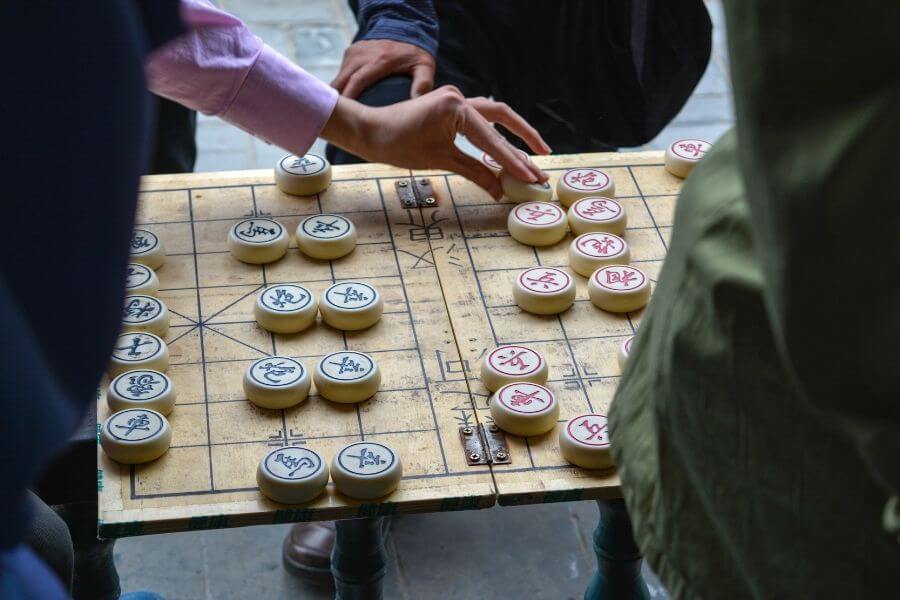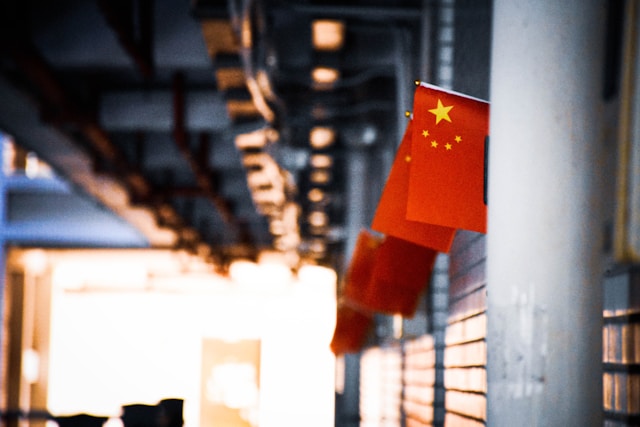
Justice Jiang Bixin (江必新) of China’s Supreme People’s Court (SPC) points out that Chinese judges shall think differently when handling commercial cases and civil cases. And now they are trying to think like a businessman in commercial cases.
I will introduce the view of Justice Jiang Bixin (江必新) (vice president of the SPC, Grand Justice of the second rank) in his article “A Comparative Study on Commercial Trials and Non-commercial Civil Trials” (商事审判与非商事民事审判之比较研究). [1]This article was published in “Journal of Law Application” (法律适用) (No. 15, 2019), a periodical of the China National Judges College, which is affiliated with China’s Supreme People's Court (SPC), and is the major education and training institution for Chinese judges.
In Chinese courts, commercial litigation and civil litigation are usually handled by two different divisions. The judges in the two divisions are referred to respectively as commercial judges and civil judges in this article. It is worth noting that, in fact, some commercial judges are often used to hearing cases with the thinking process of civil judges, which leads to the commercial litigation judgments often fail to reflect the characteristics of commercial transactions. Justice Jiang tries to call on judges to change their practices, which is also exactly what the SPC is doing recently.
In Justice Jiang’s opinion, commercial litigation mainly handles disputes concerning profit-making commercial transactions, the parties of which are usually merchants or enterprises. Civil litigation mainly deals with disputes concerning activities for the purpose of satisfying people’s basic needs, the parties of which are often ordinary citizens.
In civil litigation, Chinese civil judges often determine the reasonability of the transactions based on the daily ethical standard in public living. Civil judges believe that the parties may not have sufficient capacity to make reasonable judgments on their own, thus they will interfere with the deals made by the parties themselves. Justice Jiang refers to this kind of practice as “paternalistic care”.
In commercial litigation, commercial judges are supposed to respect the rationality and professionalism of business persons and respect their contracts. However, many commercial judges still hold paternalistic thinking as civil judges and are accustomed to intervening in business transactions, which also causes the dissatisfaction of many lawyers and corporate counsels.
In recent months, the SPC has issued successively several documents, emphasizing that commercial judges should respect the characteristics of commercial transactions. For instance, on 3rd Jul. 2019, the SPC held the Ninth National Court Civil and Commercial Trial Work Conference, on which it focused on different specific situations and explained how to respect business activities accordingly. The SPC hopes to improve the business environment in China through this approach in response to the current problems in the Chinese economy.
Under this background, Justice Jiang wrote this article. I will introduce part of his opinions on it.
I. Liquidated damages review: passive or initiative?
According to Chinese law, the courts are authorized to review whether the amount of liquidated damages agreed by the parties is reasonable and to adjust the unreasonable agreement. However, in commercial cases and civil cases, the judges shall adopt different approaches.
1. Commercial litigation: passive review of liquidated damages
Many commercial judges believe high liquidated damages are unfair and are not willing to support them. However, Justice Jiang thinks otherwise.
In Justice Jiang’s opinion, commercial judges shall respect the parties’ agreement on liquidated damages. It is preferable not to initiate a review of whether the amount of the liquidated damages is reasonable, unless so required by the defaulting party.
And when reviewing the amount of liquidated damages, the commercial judges should also determine whether the agreed liquidated damages are reasonable according to elements such as the actual loss caused by the breach of contract, the performance of a contract, the fault of the parties and the loss of expected benefits. The judges should neither assume that the liquidated damages are unreasonable simply because the amount is high, nor should they make the liquidated damages a means of profiteering for the observant party.
2. Civil litigation: initiative review of liquidated damages
Civil judges can initiate a review whether the amount of the agreed liquidated damages is reasonable or not. In particular, when the liquidated damages are specified in the standard form contract provided by the sellers, the judges should take the initiative on review of such terms. Even though, Justice Jiang suggests that the defaulting party should not count on the courts’ adjustment of the liquidated damages to evade the liability for breaching the contract.
II. Standard form contract: respect or alert?
1. Commercial litigation: respect the agreement of standard form contract
In a commercial transaction, even if the standard contract contains unfair clauses, the commercial judges shall recognize its validity rather than deny its reasonableness in a hasty manner. Because the parties voluntarily use the standard contract to improve the efficiency of transactions, the commercial judges shall also respect the parties’ agreement and their pursuit of efficiency.
However, in fact, many commercial judges often think that as long as a standard contract is adopted in a transaction, the party accepting the standard contract will be at a disadvantage and shall be given special protection.
According to Justice Jiang, the commercial subjects are capable of understanding the standard clauses in a contract and can make reasonable judgement. Therefore, once a standard contract is accepted by the parties, it shall be deemed reasonable.
2. Civil litigation: alert of standard form contracts
Civil judges shall pay attention to the fairness of the standard form contract and take the initiative on review of it. If it is a natural person who’s accepting the standard form contract, the judge has the reason to doubt his capability of understanding the standard terms, thus explaining the standard contract in favor of that party.
III. Compensation for lost profits: should or could?
The compensation for lost profits means that if the observant party cannot get the expectant interests due to the breach of contract, the defaulting party should compensate for the expected loss of profits.
1. Commercial litigation: the expectant interests should be protected
The commercial judges should respect the available interests of the observant party.
Many commercial judges in China are reluctant to determine the loss of expected available benefits, but only agree to determine the loss that the observant party has actually incurred. In Chinese traditional idea, compensation for the actual loss is fair, while compensation for the profits in the future is unfair.
However, Justice Jiang thinks that this seemingly-fair approach is not right, because it undermines the business order. In his opinion, the observant party should get their expectant interests as long as those are justifiable commercial profits and they can not obtain extra benefit merely out of the compensation.
Justice Jiang also stresses that the observant party should not obtain additional benefit because of this, but only receive the normal commercial profits and interests that they should receive.
2. Civil litigation: the expectant interests could be protected
Civil activities are not for profit-making purposes. Therefore, civil judges do not need to protect expectant interests as strictly as commercial judges.
IV. When the agreement is ambiguous: exploring the intent of the parties vs. applying contract law
1. Commercial litigation: exploring the intent of the parties
The commercial judges shall make efforts to find the parties’ real arrangement of interests in the contract from a business perspective. Then the judges shall grant the interests to the party who should have received it on the basis of their arrangement. However, in practice, many commercial judges do not adopt this approach. It is stipulated in the Contract Law of China that when the agreement is ambiguous, judges shall apply certain provisions in the law. Many commercial judges do not try to figure out the parties’ own intent, but instead, they will rashly declare the agreement is unclear, and choose the most similar type of contract to that transaction, and then apply the relevant provisions.
2. Civil litigation: applying the contract law
Normally, civil judges will first try to determine what type is the contract according to the Contract Law. When the agreement is ambiguous, the judges will determine the interests between the parties in accordance with certain provisions concerning such type of contract in the law.
V. Liability for breach of contract: continue to perform or compensate for losses?
Continuing to perform the obligations and compensating for the losses are the two most common liabilities in the case of breach of contract. The observant party could choose either one of them. However, the judge should direct the observant party to make the most appropriate choice.
1. Commercial litigation: tending to support the compensation for losses
Commercial judges shall be in favor of supporting the compensation for losses, or to direct the observant party to claim damages to the defaulting party.
As in commercial transactions, the contract obligations are all for the purpose of profit-making, it doesn’t matter whether the contract goes on or not as long as the observant party obtains its expectant profits (such as the losses get compensated). Therefore, in commercial litigation, the court should better support the observant party for compensation, which is the best choice for commercial activities.
2. Civil litigation: tending to support continuing with performance
Civil judges shall tend to support the observant party’s claim of continuing the performance of the contract, or direct the observant party to do so. It’s because people usually conclude civil contracts for different purposes and compensation with money often may not be able to meet their needs.
VI. Our Commentaries
Chinese commercial judges are accustomed to handling commercial cases in the same way as in civil cases, which is not conducive to the effective settlement of business disputes. We could learn some previous practices of commercial judges in Justice Jiang’s article. Now that the SPC is trying to solve this problem, we hope to see the change as soon as possible.
Justice Jiang’s article also introduces other differences between commercial cases and civil cases. We will continue sharing his opinions with you in the future.
[1] 江必新.商事审判与非商事民事审判之比较研究[J].法律适用,2019(15):3-12.
Cover Photo by Damian Patkowski(https://unsplash.com/@damianpatkowski) on Unsplash
Contributors: Guodong Du 杜国栋








